|
Today is the last in a series on why representation matters in picture books written by me. Next week, you can find details on how to win picture books from each of the four authors in the series: Dorina Lazo Gilmore-Young, Xochitl Dixon, Dorena Williamson, and me. Growing up in the Midwest in the 1970s, I don’t recall reading any books with characters that looked like me. In fact, I often forgot I was different on the outside. Inside I was a little white girl. Imagine the confusion I continue to entertain in my brain. Who am I? I think the first time I saw an Asian character was in my daughter’s chapter books, The Cul-de-Sac Kids. She fell in love with that series because of it. A few years ago, my son enjoyed reading middle grade novels that featured Korean characters. Why? He could relate. As a teacher, I like sharing picture books with characters that represent my students. Their eyes brighten, and they sit up a little taller. Representation matters. Children gravitate toward characters like them, whether it’s with their looks or some shared feature/hobby. As a Christian, I want children to realize that God made us all, no matter our skin color. That we all came from Adam & Eve. That we are made in the image of God. As a parent and teacher, I want children to respect others because God loves each individual and created them. I want families to be globally minded and to know God loves everyone no matter their skin color. One way we as parents and teachers can help narrow the racial divide is by sharing diverse books and meeting with people who don’t look like us. My picture book, My Breakfast with Jesus, published by Harvest House in 2020 and illustrated by Guy Wolek is about children from around the world eating their diverse breakfasts and sharing Jesus’ love with others. In 2017, my agent suggested I write a story about food, friendship, and hospitality inspired by Jesus cooking His disciples a fish breakfast in John 21. And how neat I also had that idea in my notebook! Living in South Korea for ten years and teaching at an international school allowed me to see a variety of foods. I had fun writing this nonfiction story researching breakfasts and deciding which countries to feature. I hope it inspires kids to learn about other cultures, taste the food, and share Jesus’ love in creative ways. My other three picture books feature Korean culture. I want kids in the U.S. and around the world to hear stories about other kids who are alike yet different from them. Rice from Heaven: The Secret Mission to Feed North Koreans is about an event I participated in with North Korean refugees, sending rice in huge balloons over the border to North Korea. Korean Celebrations is a nonfiction picture book featuring holidays and traditions. The Ocean Calls: A Haenyeo Mermaid Story is based on real women divers of Jeju who dive deep into the ocean without breathing equipment, and most of these women are 50-80 years old. Stories are important in shaping who we become. As an author, I want to write stories that not only share culture and represent who I am, but stories that honor and glorify God. When a child reads one of my books, I hope they have a new understanding and appreciation for the people represented in my books, but also come away with awe of our Creator who made us all unique in His image. Reading books that feature characters different from us opens windows to other cultures and good discussion. And in the events surrounding this year, our children need to hear those conversations. Thinking back to my early years, what if there were picture books with little Asian girls? Would I think differently about myself? Give your child the gift of reading diverse books. Give them that window to see into other people’s lives. For more than 2,000 years, people have started their day with a delicious meal in their bellies and the love of Jesus in their hearts. From bacon and eggs in the heart of North America to fresh baked bread in Antarctica, believers from each continent gather in the morning to share good food and conversation, giving thanks to God for all the wonderful things He’s done. GIVEAWAY!! 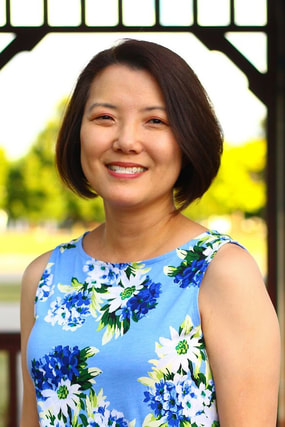 Tina Cho is the author of four picture books and an upcoming middle grade graphic novel. After living in South Korea for ten years, Tina, her husband, and two teenagers reside in Iowa where she also teaches kindergarten. Website: http://www.tinamcho.com Instagram: @tinamcho
6 Comments
This is the 3rd installment of blog posts on a series about why representation matters in picture books. Today we welcome Dorena Williamson, a speaker and author of a number of children's diverse books for kids. Welcome, Dorena! In 2004 a new children’s book made a delightful debut. I Like Myself, written by Karen Beaumont, used energetic rhymes to deliver a story of self-love that featured a little brown girl with a dynamic personality. David Catrow’s whimsical illustrations featured a lead character with spiraling black hair. This sweet book found its way into my home and into the hands of my then four-year old daughter Chase. I remember her walking around and quoting the lines that had been read over and over to her: I like myself! I’m glad I’m me. There’s no one else I’d rather be. This book was so loved that Chase felt the need to write a note inside the front cover: Chase This book! Sixteen years later, Chase would find her purpose as a skilled painter, passionate about capturing brown skin toned beauty on canvas. In a recent interview upon the release of her first published artistic work, Chase was asked about her inspiration for painting diversity. She mentioned I Like Myself and the impact of seeing a character who had spirally black hair just like her. Educator Rudine Sims Bishop teaches about the need for children to find mirrors of self-affirmation in books. I wanted that for my four black children as we raised them in a charming southern town. Many hours were spent at our local library, pulling books and engaging in storytime. While our diverse church was faithful to provide curriculum and images that reflected the beauty of diverse skin tones, I also wanted our home library to give my children both affirmation of their God-given beauty, and reinforcement of our faith-filled values. Visits to the local Christian bookstore did not satisfy this need; and often, the mainstream bookstores only had a few titles that featured characters that looked like my children. When I came across books that gave the double duty of ethnic diversity and faith, I grabbed them to stock our home and classrooms. Five years ago when God began giving me story ideas, I collected them in my journal, thinking a blog was forming. But slowly, as I reflected on cultural events and the frustration I felt when well-meaning white Christians bragged about teaching their children to be colorblind, I felt called to make a difference by writing books that would impact young hearts. God mined decades of diverse church leadership and shaped a new mid-life adventure for me. And as I began researching and learning the world of publishing, all the treasured picture books that my kids had outgrown became valuable resources. I am so thankful that there are more options of representation available for children. Diversity of ethnicity, culture, ability, religion, and family background is widely featured in forthcoming releases for children. And it is both an honor and a joy to be one of many who are passionate about providing literary mirrors for little children, especially brown and black children who, like my daughter, deserve to feel the delight of seeing a character who looks like them. Parents have shared the power of ColorFull giving their children a tool to describe the shade of skin God made for them. A mother wheeled in her toddler son for a hospital book signing for ThoughtFull and thanked me for writing a book that included a boy in a wheelchair. Messages have poured in from grateful parents and ministry leaders, sharing the need for resources like GraceFull that help open up dialogue on difficult and relevant subjects. These words all deeply bless me and remind me that representation impacts both the children who see themselves, and the adults who read alongside. Coming in October, The Celebration Place will give children a window into the beauty of diversity in our church experiences. And I celebrate Black girl joy next January with the release of Crowned with Glory - focusing on self-love and celebrating how we each are crowned with God’s glory. I treasure the psalmist’s reflections in Psalm 104:24: What a wildly wonderful world, God! You made it all, with Wisdom at your side, made earth overflow with your wonderful creations. Books open up a wonderful world for young minds curious about the diverse people and places around them. I also believe adults need to cultivate hearts that are open to learn and grow. And there are young little girls like my Chase out there. I’m writing for them, for the delight that will fill their eyes and the joy that will overflow as they see their beautiful selves on the pages of a story. I’m hoping they know that they are seen, valued and loved. One dog-eared book shaped my young daughter and the purpose she would grow into. I pray that many more just like her will be impacted by the power of representation. The Celebration Place shows children that church is not just a building; it’s a place where we come together to celebrate God with our different expressions of worship. Coming October 26, 2021. Preorder: ivpress.com/the-celebration-place 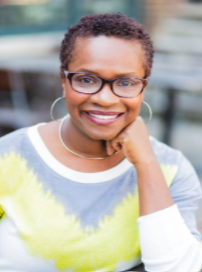 Dorena Williamson is a best-selling author who writes children's books that adults need too. She is a longtime bridge-builder and co-planter of Strong Tower Bible Church, a multicultural faith community in Nashville, TN. She is married to Dr. Chris Williamson and they have four teenage and adult children. Website: www.dorenawilliamson.com IG: @DorenaWilliamson Blog Welcome to my blog, Xochitl! Her book, Different Like Me and my book (My Breakfast with Jesus) debuted last year on the same day during the pandemic, and so we were able to do some marketing together. Xochitl is a sweet, wonderful Christian writer. Please welcome her as she talks about representation in picture books. ***** I still remember the expression on my mom’s face when she caught me holding the scissors and black Sharpie. Her eyes widened as she looked at the blonde Barbie dolls splayed on the floor in front of me and then stared at me. “Why?” Picking up one of the dolls, I stroked her freshly cut and dyed Sharpie-black hair. “I wanted them to look like me.” My mother, a few shades darker than me, pressed her lips together and sighed. She remained silent as she gathered my dolls and confiscated my cosmetology supplies. At that time, I didn’t understand why she hugged me so tight. I didn’t understand when or why I started thinking I was ugly. I didn’t understand why I felt caught between two worlds that didn’t want me. I wasn’t “really Mexican.” I wasn’t “Mexican enough.” And I was “light but not white.” I didn’t understand why I avoided speaking my native tongue after a woman told me to stop speaking “dirty Spanish” because she didn’t approve of my accent or occasional dips into Spanglish. I still don’t understand why I have to endure the repeated punch-in-the-gut question: What are you? And I still don’t understand why I wanted to assimilate into a world that rejected me and lacked positive representation of people who were different like me . . . until I became a mom. As a first-generation Mexican American married to a Black man, I didn’t want my sons to share my struggle with identity or to begin hating their reflection. I packed our personal library with books that celebrated Black and Mexican history, though we had limited selections. I explained negative stereotypes and exposed our sons to BIPOC inventors, scientists, activists, and other great leaders. Almost every nationality was represented in our friend circle. Determined to empower our youngest son with a strong sense of identity, I convinced my husband that we had to enroll him in a Dual Immersion Kindergarten. Through the pilot program, designed to integrate Spanish and English speakers, Xavier would learn about the culture I didn’t have a chance to embrace. He would study the culture I couldn’t find when I surfed channels on television or scoured shelves in the library. My son would have a chance to become fluent in the “proper dialect” of the language I had been convinced I should only speak when absolutely necessary and definitely not with confidence. That same year, in 2001, I surrendered my life to Jesus. I began a journey to discover my true identity as God’s child ̶ an identity that included and celebrated the culture that my parents’ well-intentioned desires for assimilation erased. Old scars became fresh wounds when my kindergartener told me a fellow student called him a racial slur. How could I teach my sons to respond to racism with confidence in their value as God’s image-bearers when I still struggled with insecurities? How could I teach them to respect others who were different from them and rejoice in the ways we were the same? As I continued learning and teaching them about our identities in Christ, I negated the lies and the images that screamed they weren’t worth enough to be seen or known. Then, one day as I was praying for my sons, I wrote my first picture book. Different Like Me celebrates our differences and our sameness as God’s beautifully diverse and purposefully connected people, a message I was still learning to live out with bold faith. Eighteen years later, God placed Different Like Me into the hands of editors at Our Daily Bread Publishing. Two years after that, He began using the message to empower readers internationally. The lack of BIPOC representation and rejection stunted my confidence as a child. Deep-rooted insecurities distorted my view of myself and others, twisting my thinking with lies that followed me into adulthood. As readers continue responding to the message in Different Like Me, a 2021 ECPA Christian Book Award Finalist, I’m beginning to understand I’m not alone in my struggles. Growing more secure in my identity as a child of God increased my desire to empower others with God’s truth and love. What am I? I am a Child of God, fearfully and marvelously made, purposed to fulfill the Greatest Commandment and the Great Commission ̶ to go and make disciples of all nations (Matthew 28:19, emphasis mine). But I couldn’t love God with all my heart and soul and mind (Matthew 22:37) until I could see the face of Jesus, get to know Him in His Word illuminated by His Spirit. The more I fell in love with God, the more my love for people grew, and the more I wanted to obey His command to love my neighbor as myself (Matthew 22:39). The journey proved to be a bit more difficult than I thought it should be. I couldn’t truly love myself or anyone else until I saw myself, my true identity in Christ and my reflection in the world around me. Children who see themselves represented in positive ways in the world around them are affirmed as a whole person who is worth knowing and loving. Accurate representation that destroys negative stereotypes honors God and gives readers a glimpse of heaven. The apostle John wrote: “After this I looked, and there before me was a great multitude that no one could count, from every nation, tribe, people, and language, standing before the throne and before the Lamb” (Revelation 7:9, emphasis mine). I pray all my children’s books can paint this beautiful image of God’s intentional diversity and unifying love in the hearts and minds of His image-bearers. As I continue to advocate for diversity and inclusion, I want to share this message with Spirit-empowered courage and confidence: God made everyone different and special . . . like me. Take a fanciful, colorful journey with a diverse group of children as they collectively work to bring a large fish balloon toward a surprising conclusion in Different Like Me. While encountering the differences that could divide them, they also discover how God designed them to be better together. 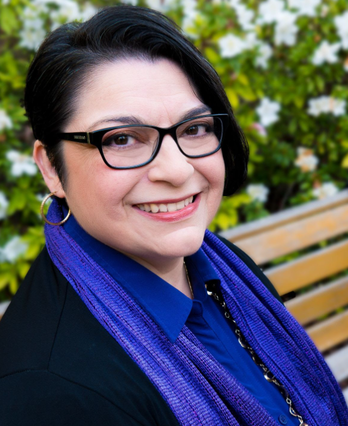 Xochitl Dixon, Our Daily Bread writer and author of Waiting for God and Different Like Me, an 2021 ECPA Christian Book Award Finalist, has contributed to multiple magazines and compilations. She equips and encourages readers to remain rooted in God’s Word while growing with His beautifully diverse people at www.xedixon.com. Instagram: @xochitl.e.dixon This month I'm hosting a series on my blog on why representation matters in picture books. Today's guest post is by a wonderful author and speaker that I met online last year. Please welcome, Dorina! 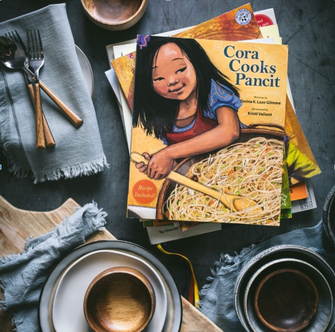 I was a voracious reader when I was young. Part of this was instigated by my mother, who was a teacher, and read books aloud to my brother and me. She invited us to venture through the wardrobe into another world with Lucy, Edmund, Susan, and Peter. She made the poetry of Robert Frost come alive as we imagined those two roads that diverged in a yellow wood. My favorite picture book when I was a child was Nine Days to Christmas by Hall Ets, a Caldecott Winner. In the early ‘80s, it was one of the few books I could find that featured a girl with brown skin and included rich cultural details. Although our family did not have Mexican roots, I was mesmerized by this book. It transported me to another place that somehow felt like home. My mom had lived in Mexico and she affirmed the storyline of this book, where a girl named Ceci is eagerly awaiting Las Posadas - the traditional nine-day series of Christmas celebrations in her village. I examined the illustrations and poured over the pages of that book again and again. I felt like I was going to the market with Ceci and her mother to select the biggest piñata we could find. I dreamed of becoming a children’s book author one day and writing books like this one. I ended up pursuing a career in newspaper reporting and teaching, but one summer I found out about a class on writing children’s books. I knew it was time to pursue my dream of writing for kids. I eventually enrolled in the MFA in Children’s Literature program at Hollins University. Through my graduate work, I had permission to spend hours in the library reading children’s literature and writing stories. In those years, I had my first baby girl with two more to come. I longed to write books for my own multiracial daughters and others that centered characters of color. During that season, I wrote Cora Cooks Pancit about a Filipino-American girl learning to cook a traditional noodle dish with her mama. The book was a compilation of my own experiences growing up in the kitchen with my mama, grandmas and aunties as well as the stories I had gathered of other Filipino-American families in California’s Central Valley. I tried for several years to get that book published, but continued to receive nice rejection letters. Editors and agents told me they liked the story or the writing was good, but the book was too niche to sell. In other words, stories about a specific cultural group like this one would be hard to market. One day, I received a phone call from an editor named Renee Ting. She just read my manuscript and wanted to publish it. I almost dropped the phone. When I got home and consulted my notes, I discovered I had submitted to Shen’s Books two years earlier. In a few months, I signed a contract with Shen’s Books (today an imprint of Lee & Low Books). I didn’t have an agent, but Renee ushered me through the publishing process. My book baby, Cora Cooks Pancit, was born in June 2009 with illustrations by Kristi Valiant. Our book was awarded the Picture Book of the Year by the Asian American Librarian’s Association. We were invited to Washington, D.C. to receive the award and give speeches. The most magical part was meeting my illustrator Kristi in person and hearing more about her process in creating the beautiful illustrations. Over the next decade, I read Cora Cooks Pancit aloud and spoke at schools up and down the state of California. My greatest joy was seeing the faces of Filipino-American students light up when they recognized the signature dish that represented their culture - pancit. On several occasions, I cooked pancit for classes. Students from all different cultures tasted it for the first time. This was an open door to celebrate diversity and culture and to pivot away from the colorblind rhetoric that so often finds its way into education settings. Today, my Cora book is 11 years old and in her ninth printing. I like to think of her as a middle schooler in a new season for publishing. My heart is encouraged as I see a mounting desire among publishers, schools, and readers for books about and for children of color. My youngest daughter, who is 9 now, enjoys books like Colorfull by Dorena Williamson, Different Like Me by Xochitl Dixon, My Breakfast with Jesus by Tina Cho, The Mindy Kim series by Lyla Lee, and Any Day with You by Mae Respicio featuring kids that look like her. These books are not considered “too niche,” but regarded as an invitation to readers to learn from and about kids from multicultural backgrounds. We have tasted progress, but we have not yet arrived. Representation still matters. As an author, an educator, and a mother of three brave girls, I want to be part of carrying the torch. Our family recently started a membership program called Global Glory Chasers. Each month we focus on a specific country and curate a list of books, movies, music, and recipes so families can delve deeper into learning about different cultures together. I believe that reading and listening to diverse stories can help shape all of us. Stories have the power to educate, instruct, and heal. As a Christian, I look to Jesus as the best model for using stories to heal. Jesus was a storyteller. He brought the Good News. He chose to share stories that represented and challenged the people who listened. He invited the marginalized to tell their stories. He didn’t elevate the story of a tax collector over an abused woman, or a Jew over a Gentile. Instead, he treated each narrative as precious and part of the whole story being written by God Himself. His stories resounded with love and forgiveness. Psalm 107 says: “Let the redeemed of the LORD tell their story— those he redeemed from the hand of the foe, those he gathered from the lands, from east and west, from north and south.” (Psalm 107:2-3, NIV) These words, penned hundreds of years before Jesus’ ministry and before us, are an invitation to tell our stories. The Israelites continued to tell the story of how God restored them from captivity. Jesus told stories that would shape our understanding of His Father’s Kingdom. And we are called to tell our stories today. When we have fuller representation of stories by God’s image bearers, we experience a more dynamic narrative of who God is and the work He is doing in our world. Cora loves being in the kitchen, but she always gets stuck doing the kid jobs like licking the spoon. One day, however, when her older sisters and brother head out, Cora finally gets the chance to be Mama's assistant chef. Cora and Mama work together to cook up pancit for the family in this celebration of Filipino heritage and foods. 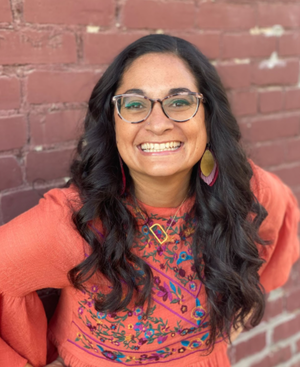 Dorina is an award-winning author, speaker, Bible teacher, and podcaster. She helps people chase God's glory down unexpected trails and flourish in their God-given callings. She and her husband Shawn are raising three brave daughters in Central California, who love to travel and learn about different cultures. Connect with her at www.DorinaGilmore.com. https://dorinagilmore.com/dorinas-childrens-books/ www.instagram.com/DorinaGilmore |
Tina M. Cho, children's authorI'm a children's author and freelance writer for the educational market. Welcome! Archives
March 2024
Categories
All
|

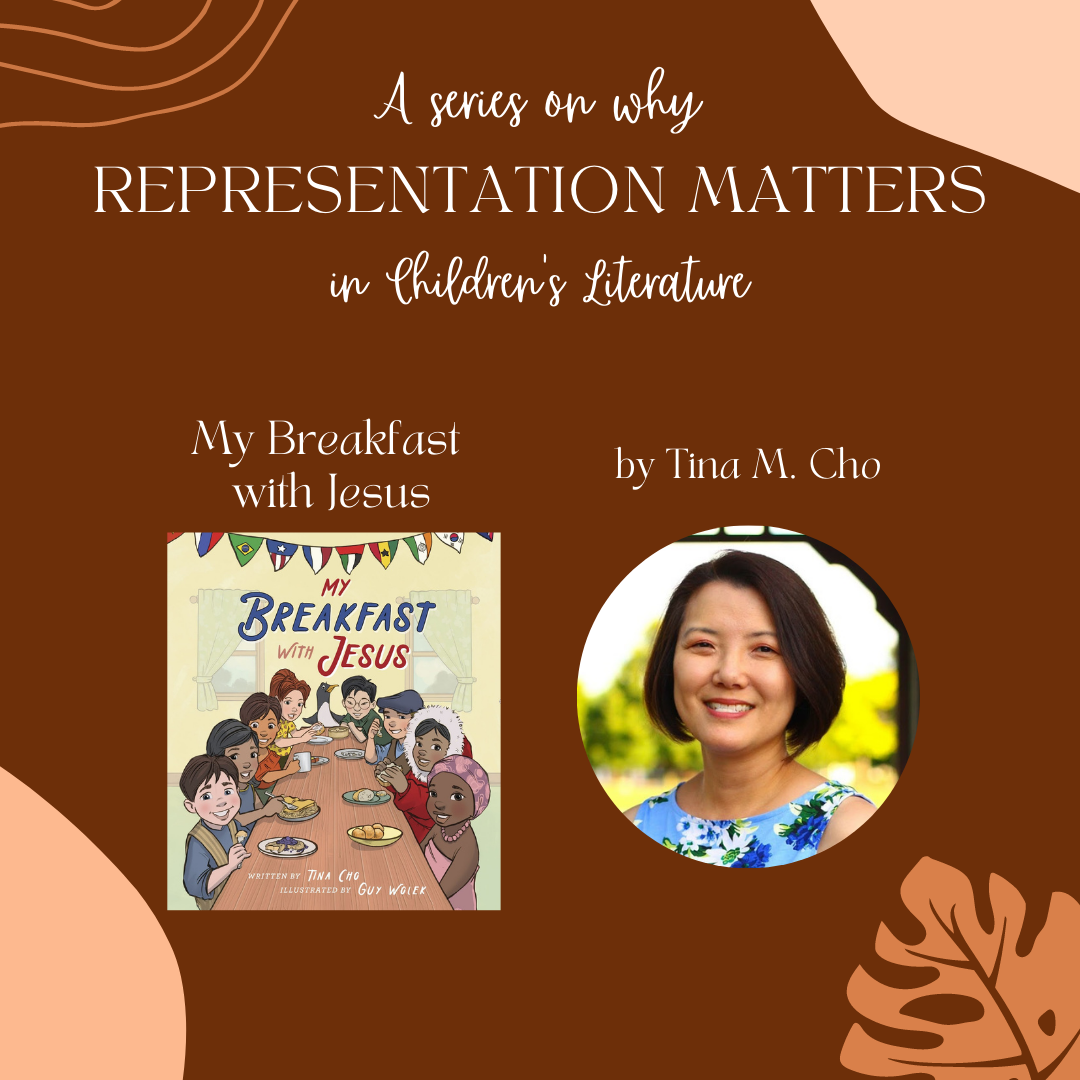
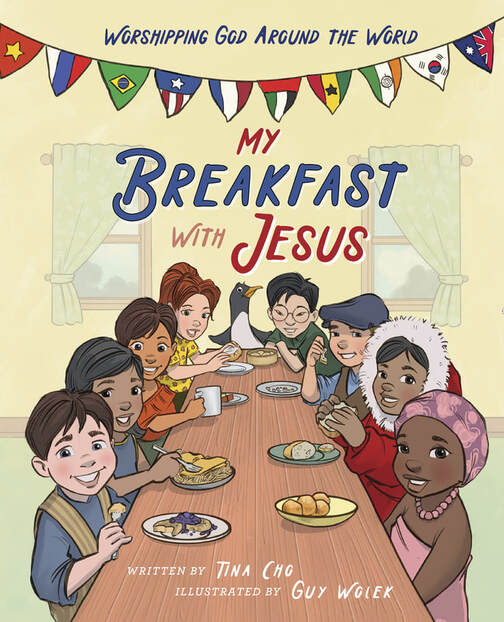
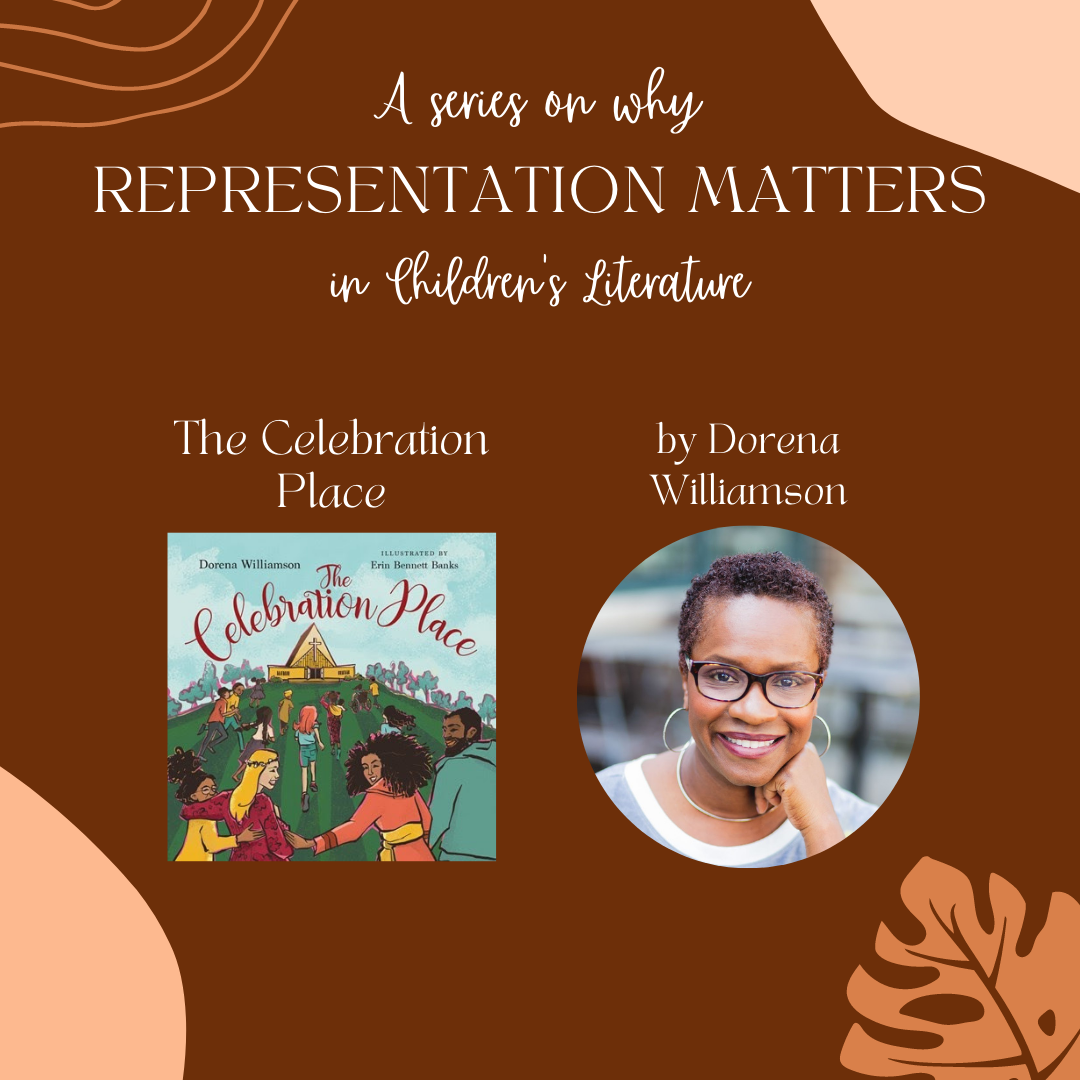
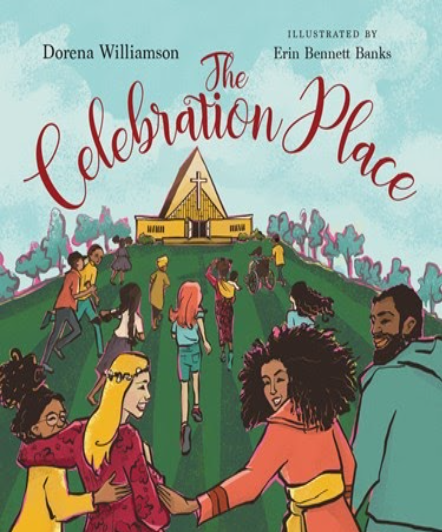
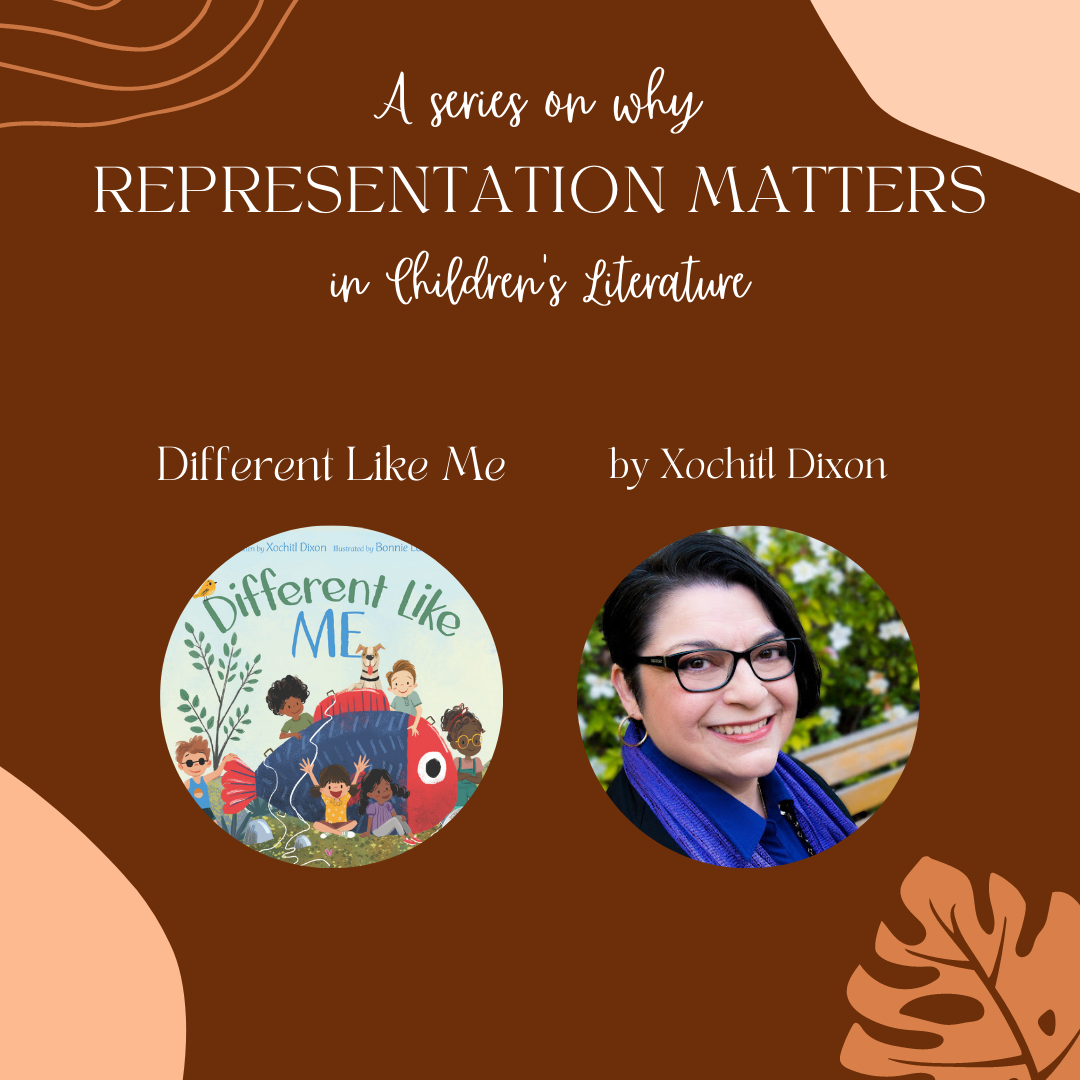
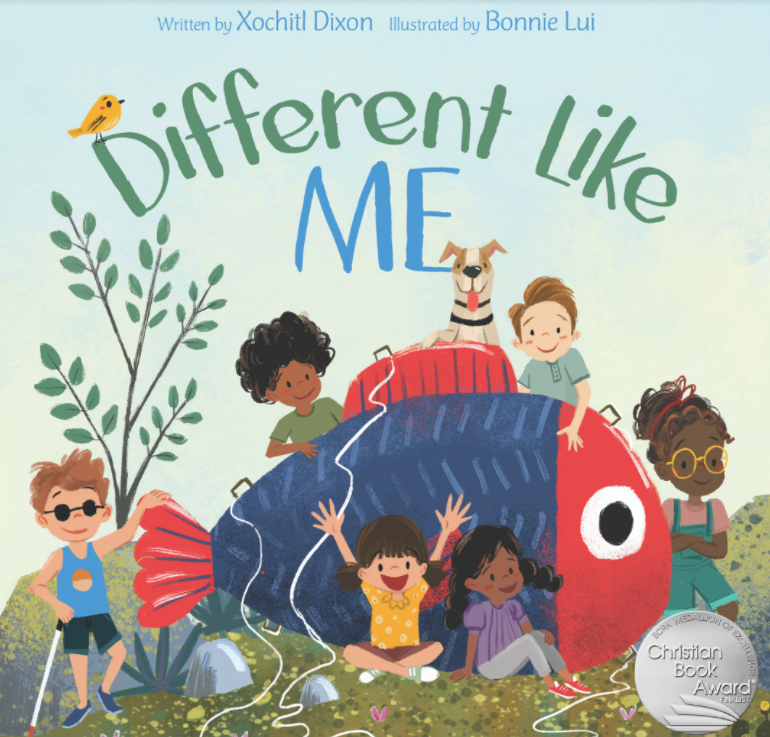
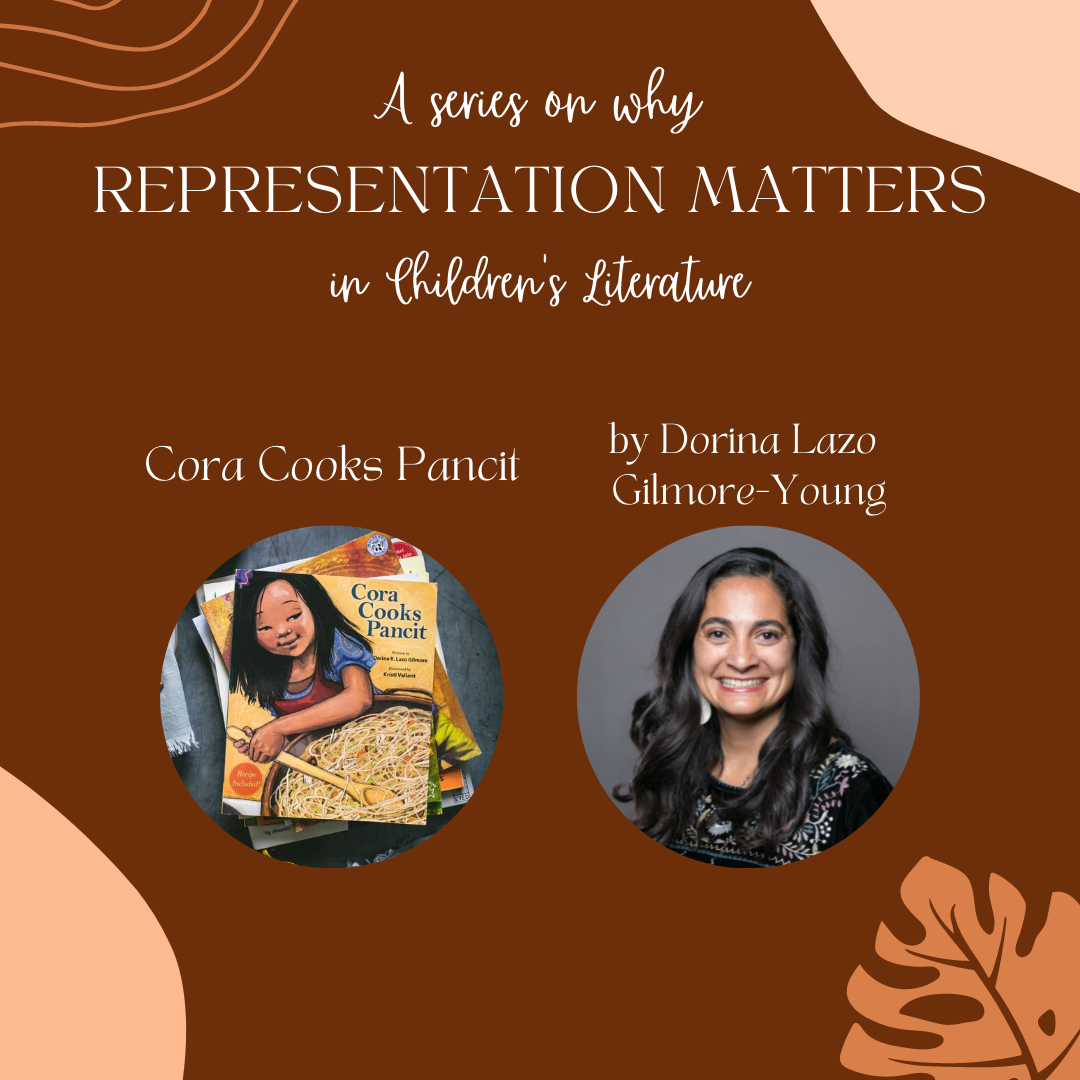
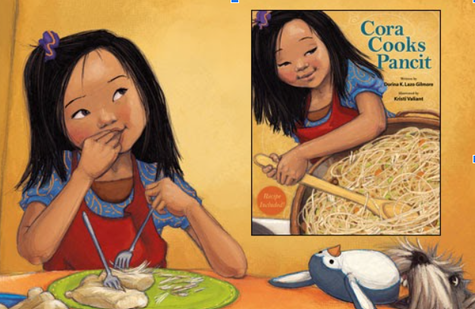

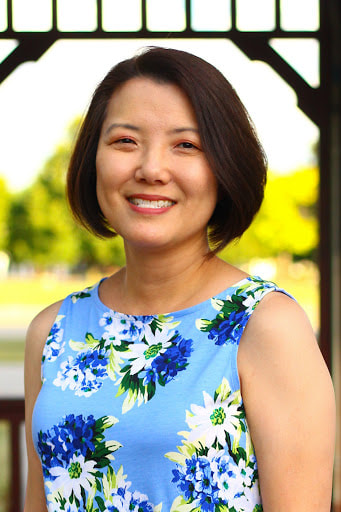

 RSS Feed
RSS Feed
